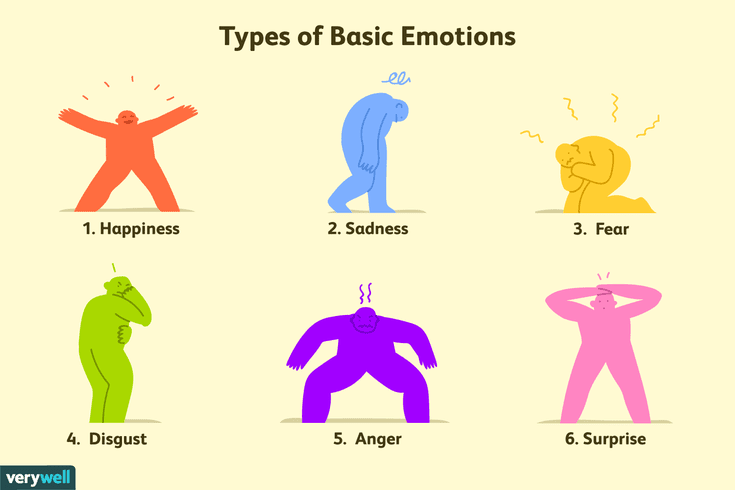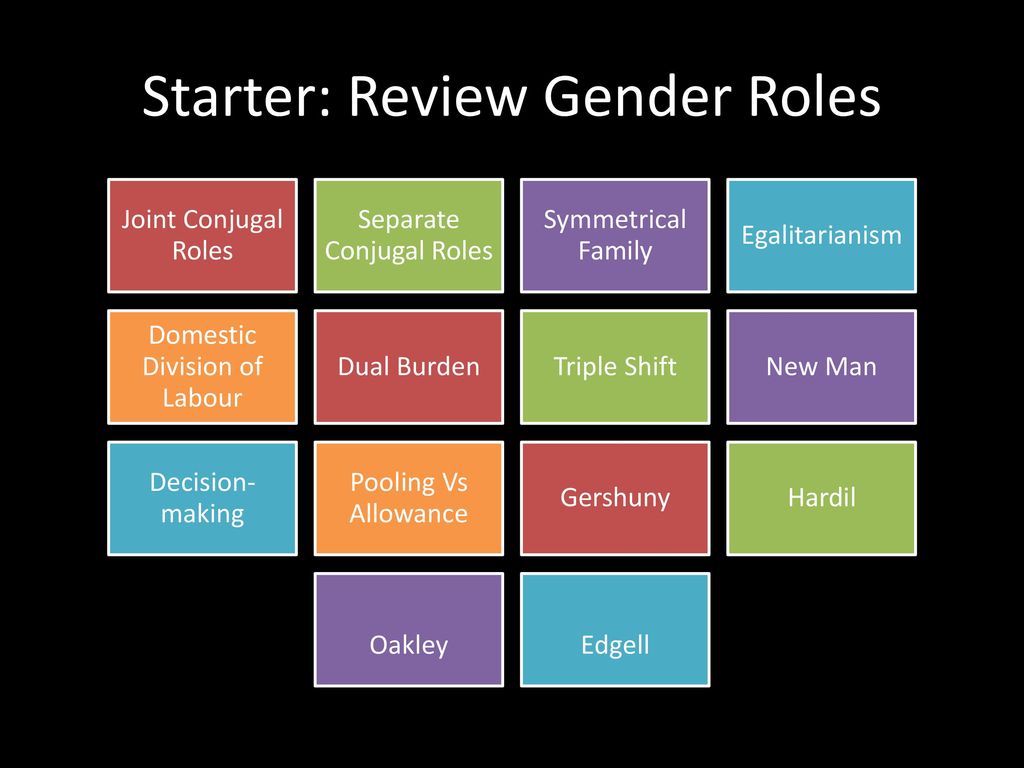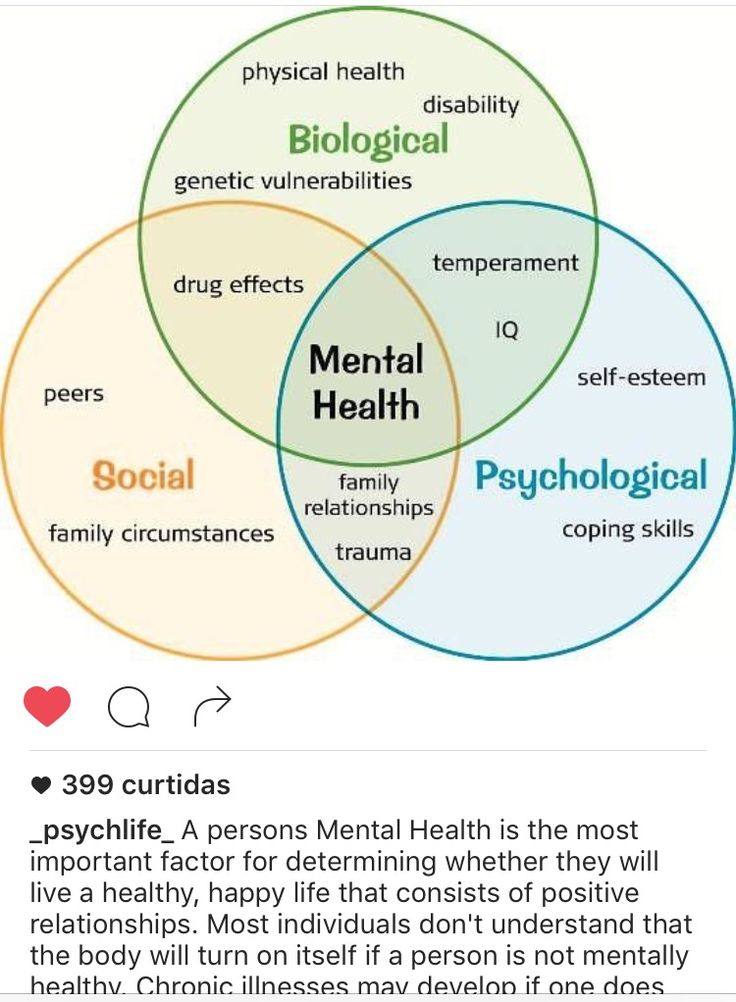Parenting teens tips
Parenting teenagers | Top Ten Tips for parents and families
Top ten tips for parents and families
Read them below or download the PDF file here.
Being a parent isn't always easy. The teenage years can be particularly difficult as teenagers may behave like adults one minute and children the next. Here are some tips which you may find helpful.
- 1) Conflict is normal
-
Conflict with your teenager is not always a bad thing - your teenager is learning to become independent. Try to stay calm. Listen to your teenager's point of view and decide what is worth taking a stand on and what isn't.
- 2) Give clear guidelines
-
Set out clear guidelines about what is acceptable.
Tell teenager where you're going, who with and when you'll be back - expect them to do the same. Teenagers need clear guidelines just as much as younger children - setting boundaries shows you care.
- 3) Respect their views
-
Don't expect teenagers to agree with everything you say. The teenage years are a time of testing opinions and people. Sometimes parents and teenagers have to agree to differ. Your teenager is more likely to respect your views if you respect theirs.
- 4) Show interest
-
Let your teenager know that you are interested in what they do at home and at school. Offer support and guidance with school work and revision.
 Keep an eye on where they are and who they are with, encourage them to talk about how they feel - but beware of turning interest into pressure.
Keep an eye on where they are and who they are with, encourage them to talk about how they feel - but beware of turning interest into pressure. - 5) Spend time together
-
Your child is maturing and your relationship may be changing. Spend time doing everyday things together. The teenage years are exciting and enjoyable. Have fun - they'll soon be grown up. Let them know you will always be there for them.
- 6) Make time for talking and listening
-
Teenagers say that their parents do not listen to them. Let your teenager know that you have time to talk. Share your values with them but don't impose them. If your teenager wants to talk, make time to listen.

- 7) Give them space
-
We all need time for ourselves. Teenagers need their own space, time for themselves and the right not to tell their parents everything about their lives. Respect your teenager's right to privacy and try to remember what it was like to be a teenager.
- 8) Encourage them
-
Giving encouragement and taking an interest in your teenager is as important as praising them. Praise them for their efforts and let them know when they do something that pleases you. Don't be afraid to tell them that you love them, even if you get no response.
- 9) Share your life experiences
-
Let them know that you've made mistakes and tell them some of the things that you would do differently if you had the chance.
 Let them learn from the consequences of their actions - don't protect them too much.
Let them learn from the consequences of their actions - don't protect them too much. - 10) Look after yourself
-
Parents today have a difficult job to do but parents don't need to be perfect. Make sure you look after yourself and have people to talk to when you need to. Try to spend sometime thinking about your own life and priorities.
15 Tips to Raise Happy, Motivated Teenagers
When it comes to parenting your teens, does your home feel more like a battleground than a sanctuary?
If so, you’re not alone.
Navigating the teenage years is stressful for both you and your children.
You only want to help your teenagers succeed, yet everything you say or do seems to annoy them.
You’re understandably frustrated by their mood swings and irritability.
So, how does a parent survive these challenging teenage years?
As someone who coaches teens for a living, I’ve learned that even the most difficult teenagers are capable of transformation.
I’ve seen many struggling teens become successful students and well-adjusted members of the family.
With the right parenting tips, you can raise a respectful, responsible teen — and bring peace back to your home, too.
FREE E-BOOK: Get your copy of 16 Keys to Motivating Your Teenager. The e-book has already been downloaded by many thousands of parents, so don't miss out!
It’s normal to have problems between teens and their parents. Here’s why…
Growing up isn’t easy — and neither is parenting teens.
If you find yourself in a constant struggle with your teenagers, here are a few common reasons why they might be acting out:
A. Your teen is learning to express his/her emotions
Do you feel like your teens roll their eyes no matter what you say?
Or maybe your teens talk back to you angrily or don’t respond at all?
It’s frustrating to deal with a moody teenager, especially when you’re just trying to help.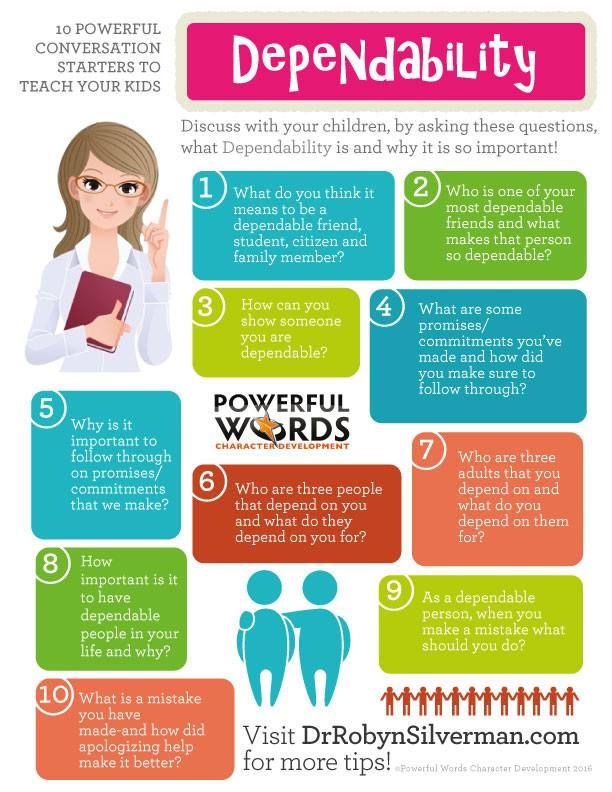
During the teenage years, your children’s hormones go into overdrive. Your teens are likely feeling stressed, irritable, and confused. They’re unsure about how to navigate and express their emotions.
I’m not saying you should tolerate severe disrespect. Boundaries and consequences are crucial to raising a respectful teen.
If you’re wondering how to deal with teenage attitude, it helps to realise that your teens’ behaviour sometimes has little to do with you.
B. Your teen is developing a sense of identity
“I’m not a child anymore!”
Does your teenager like to remind you of this fact?
That’s because teenagehood is a time when children discover who they are and what they love: their personality and passions.
With individuality comes independence. It’s normal for teens to want increased autonomy and to be frustrated with rigid rules, schedules, and expectations.
As your teens discover their identity, remember to show them unconditional love, respect, and support.
(The tips for parenting teens that I’ll share below will help you do exactly that.)
C. Your teen feels powerless
Now you know that teenagers are still learning how to express themselves while also trying to discover their identity.
At the same time, they feel confined by rules and schedules over which they have no control.
It’s no wonder that many teenagers feel powerless!
Micromanaging your teens is like adding fuel to a fire. It only makes the situation worse.
The good news is that there are simple steps you can take to empower your teen — and raise a more respectful, responsible teen, too.
15 tips for parenting teenagers
Parenting teenagers is tricky, but there are many ways to adjust your parenting style and improve your relationship with your teen.
Let’s explore these 15 tips for how to handle teenagers more effectively:
1. Set rules and boundaries together with your teen
What’s a straightforward way to help your teens feel like they have control over their lives?
Involve them in the rule-setting process.
I’m not saying that you should let your teens dictate unreasonable family boundaries. But you can sit down together to discuss rules — and consequences — that are fair for everyone involved.
When you do this, your teens will see that you respect their opinions and independence. Plus, they’ll be far more likely to keep to the agreed-upon boundaries.
2. Communicate like a parent and a friend
Think about how you converse with your friends for a second.
If they come to you with a problem, do you interrupt and lecture them? Probably not.
I’m guessing that you actively listen to them, then offer advice only when appropriate.
If you want your teens to come to you with their problems, then you need to show them respect. A proven way to maintain open lines of communication is to listen more and speak less.
You’ll still want to give guidance and coaching — just without the excessive lecturing and interrupting.
3. Spend quality time together
I’m sure you’re busy.
It’s not easy to juggle a career, household responsibilities, parenting teens, and self-care. I’m a parent too, so I understand.
But this saying is one that’s good to keep in mind when things are hectic: The present moment is all we ever have.
Don’t let the days race by without spending quality time with your teenager.
You’ll create meaningful memories for years to come, and your teen will know you enjoy spending time together.
Quality time together doesn’t need to be extravagant. For example, you could invite your teen to prepare dinner with you or go on a short walk around your neighbourhood.
4. Avoid talking down to your teen
It’s frustrating when teenagers are disrespectful, but responding with disrespect will harm the relationship.
Maybe your teenager won’t stop playing video games and do his homework.
Or maybe you asked for your teenager’s help around the house, but when you get home, the place is still a mess.
You might feel like saying something along the lines of:
I’m the parent, and you’re the child. So just do what I say!
So just do what I say!
Teens need to learn to follow rules and respect boundaries, but they also want to become more independent. If you make them feel as if they’re just little kids, they’ll rebel.
So speak to your teen firmly but with respect.
Here’s a quick tip: Change “you” statements into “I” statements.
For example, instead of saying, “You are always so lazy,” try saying, “I feel disrespected when you don’t do your chores as we had agreed.”
5. Let your teen experience the consequences of his/her actions
We all make mistakes sometimes. But when we make the same mistake again and again, it becomes a habit.
How do you help your teenagers learn from their mistakes?
By letting them experience the natural consequences of their actions, as far as possible.
If your teenager knows that you’ll drive her to school anytime she misses the bus, she’ll have little motivation to wake up on time.
The same is true if you petition a teacher to let your teenager retake a test if he gets a bad grade. If you do this repeatedly, he won’t develop the study habits necessary to do well in school.
If you do this repeatedly, he won’t develop the study habits necessary to do well in school.
All parents want to save their kids from pain. But sometimes the best way to teach a life lesson is to let your teens experience the repercussions of their actions.
6. Focus on the things that matter
Does your teenager have a hairstyle you don’t like? Does she gravitate towards fashion choices that make your head spin?
As tempting as it is to try and control your teen’s life, even the most responsible teenagers are discovering their individuality and personality.
So, when it comes to parenting teens, save your limited energy for the things that matter the most in the long run.
7. Don’t have difficult conversations when you’re angry
Imagine the following scene:
Your teen comes home an hour after curfew, with no calls or messages to inform you that she would be late. Your anxiety turns into outrage. You were worried that she was in danger, and she didn’t even answer your phone calls?!
In this scenario, most parents would sit their teens down and immediately start lecturing them about their irresponsible behaviour.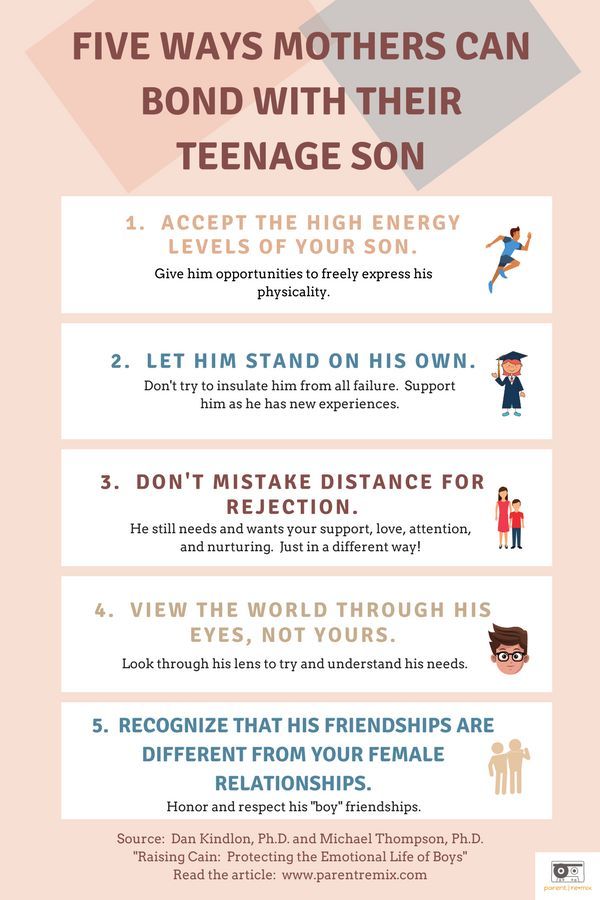
The only problem?
If you do this, your teenager will shut down or become defensive. She’ll be unlikely to engage in a meaningful conversation with you.
Whenever possible, try to have difficult conversations when both you and your teen are calm.
Your teens need to understand what mistakes they made. But it’s always easier to teach a lesson when your own emotions aren’t getting in the way.
8. Support your teen’s interests and passions
Does your teen have a hobby that you don’t understand?
Do you nag your teen to be less distracted and more “productive”?
As long as your teens have reasonable time management skills, do your best to support their passions.
Start by observing what their hobbies and interests are. Listen to their favourite music together with them or let them choose the Friday night movie.
This will show your teens that you’re genuinely interested in getting to know them better — and that is a powerful gift.
9.
 Eat meals together regularly
Eat meals together regularlyThe benefits of family mealtimes are indisputable. Research shows that eating as a family:
- Improves academic performance
- Lowers rates of depression, anxiety, and substance abuse
- Builds resilience and self-esteem
- Improves physical health
- Reduces the likelihood of tobacco use, teenage pregnancy, and substance abuse
What’s more, 80% of teenagers say that family mealtimes are when they’re most likely to talk to their parents. If you want to communicate more with your teens, mealtimes are an ideal opportunity to do so.
This is a simple tip for parenting teens that you shouldn’t skip!
10. Recognise your teen’s good behaviour and habits
I know… you might be thinking that your teen doesn’t display any good behaviour or habits!
It’s easy to criticise your teens, especially when you’re trying to help them develop good habits for lifelong success.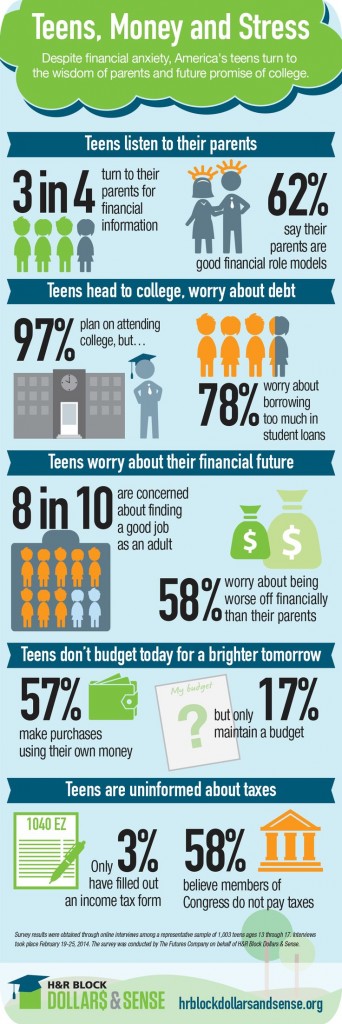
But it’s helpful to take a step back and observe all the positive things your teens do, no matter how small those things might be.
If you notice your teens studying hard on a Friday night or making their bed before school, acknowledge it. Descriptive praise is a proven way to motivate teens.
Even if your teens don’t seem to care about your opinion, rest assured that they actually do.
Teens crave approval from the trusted adults in their lives, but sometimes they give up trying if they think they’re never going to get that approval.
11. Set a positive example for your teen
Your teens are constantly observing what you say and do. So set a good example for them.
If your teens see that you’re committed to personal development, they’ll be more likely to develop positive habits too.
And if your teens observe that you’re kind, respectful, hardworking, and responsible?
That’s right — they’ll be more likely to develop these qualities, too.
Here are some ways to set a positive example for your teens:
- Be generous
- Be grateful
- Volunteer
- Embrace challenges
- Take care of your physical and mental health
- Apologise when you’ve made a mistake
12. Don’t compare your teen with others
You know your teens are capable. But when you learn that your neighbour’s children are getting better grades or that your niece won a scholarship to a top-tier university, you might find yourself comparing your teens with them.
But doing this is detrimental to the parent-teen relationship. Plus, comparison hurts your teens’ self-esteem and can even lead to resentment towards you.
Focus on encouraging your teens and following the other parenting tips in this article, and you’ll be on the right track.
13. Stay involved in your teen’s life, but respect his/her privacy
It’s crucial to understand what’s going on in your teens’ lives.
If they’re engaging in harmful behaviour or hanging out with bad company, you’ll want to know so you can guide them to make better decisions.
The best way to keep up with what’s going on in your teen’s life isn’t to read her diary or invade her personal space.
Instead, stay present and engaged with your teens. Communicate with them. Do things with them that they enjoy. Listen to them when they complain or vent their frustrations.
When you show your teenagers that you respect their freedom and privacy, they’ll be more likely to come to you when they have problems.
14. Encourage self-care
It’s important for teens to do their best to learn effectively and get good grades, but it’s also important that they lead a balanced life.
Teach your teenagers that sleep, nutrition, and exercise will improve their quality of life. If they don’t feel good physically, you’ll have a hard time motivating your teens to do anything productive.
Appropriate self-care will also enable them to focus and do more meaningful things with their time.
Help your teens to learn positive ways to cope with stress and anxiety. They’ll then mature into healthy adults who know how to take care of themselves and do things for the benefit of others too. (Here’s a detailed article about how to help teens with anxiety.)
15. Don’t be afraid to be vulnerable
Finally, remember to show your teens that you’re human, too.
The perfect parent doesn’t exist! It’s okay to make mistakes while parenting your teens.
Rather than pretend like you have everything figured out, demonstrate vulnerability.
Ask for forgiveness when you mess up. Show your teen that life isn’t about perfection, but instead, it’s always about learning and growing.
Conclusion
Parenting teens is hard work, but I’m confident that you’ll do a great job as you apply the tips in this article.
Keep doing your best, and you’ll set your teenagers up for lifelong success and happiness.
Want a step-by-step system to help your teens become motivated and responsible — guaranteed?
Sign up for my online course for parents of teens and get the strategies (and support) you need!
FREE E-BOOK: Get your copy of 16 Keys to Motivating Your Teenager. The e-book has already been downloaded by many thousands of parents, so don't miss out!
The e-book has already been downloaded by many thousands of parents, so don't miss out!
PSYCHOLOGIST'S TIPS TO PARENTS OF TEENAGERS | The official site of the Kabardino-Balkarian State University. HM. BerbekovaOfficial site of the Kabardino-Balkarian State University named after I.I. HM. Berbekova
PSYCHOLOGIST'S ADVICE TO PARENTS OF TEENAGERS
- Interest and help. Parental support generates a trusting relationship between children and parents and entails high self-esteem of adolescents, contributes to academic success and moral development. Insufficient parental support, on the contrary, can lead to a child's low self-esteem, poor learning, impulsive actions, poor social adaptation, unstable and antisocial behavior. nine0010
- The ability of parents to listen, understand and empathize. The inability of parents to empathize (empathy), their lack of emotional susceptibility and understanding of the thoughts and feelings of the child can lead to the development of indifference in the child.
 Respect for a teenager, communication of parents with him contribute to the establishment of harmonious relations in the family.
Respect for a teenager, communication of parents with him contribute to the establishment of harmonious relations in the family. - Love of parents and positive emotions in family relationships are associated with intimacy, affection, love, receptivity; family members at the same time show mutual interest and responsiveness. If negative emotions prevail in the family, then coldness, hostility, rejection are observed, which can lead either to the predominance of the child's need for love (in adulthood), or to the formation of isolation, coldness, inability to express his love to loved ones, including to children. nine0010
- Parental recognition and approval.
- Trust in the child. Distrust of children, as a rule, indicates that parents are projecting their own fears, anxieties or feelings of guilt onto them. Insecure parents (or those who have experienced certain difficulties in the past) are more likely to fear for their children than others.
- Treating a child as an independent and adult person.
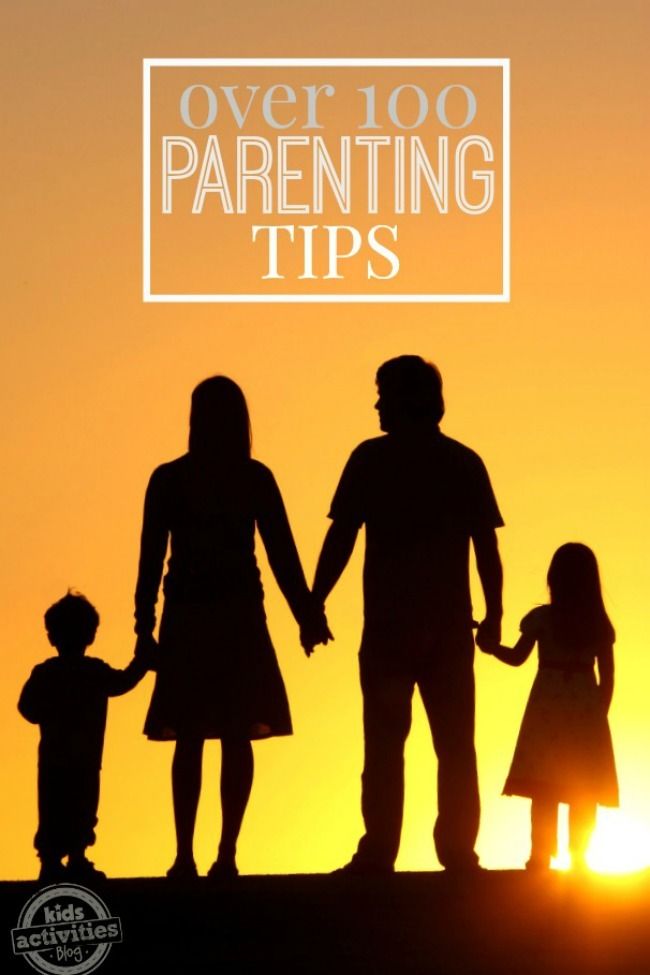 The achievement of independence by a teenager occurs in the process of individualization, when he is engaged in the formation of his own individuality and at the same time establishes new ties with his parents. The teenager is trying to change the relationship with his parents, while trying to maintain the same communication, affection and trust. In order to show their own individuality, adolescents are guided by a system of values that is different from that of their parents, they set themselves other goals, other interests and other points of view. nine0010
The achievement of independence by a teenager occurs in the process of individualization, when he is engaged in the formation of his own individuality and at the same time establishes new ties with his parents. The teenager is trying to change the relationship with his parents, while trying to maintain the same communication, affection and trust. In order to show their own individuality, adolescents are guided by a system of values that is different from that of their parents, they set themselves other goals, other interests and other points of view. nine0010 - Parental guidance. The most functional are those families where parents show flexibility, adaptability and tolerance in their views and behavior. Parents who are inflexible in raising teenagers refuse to reconsider their views and change their point of view; they are intolerant, overly demanding, always critical and place unjustified hopes on children that do not correspond to their age. This adversely affects the self-esteem of a teenager, suppresses the development of his personality, which ultimately leads to stressful situations in the relationship between parents and children.
 nine0010
nine0010 - Parental example: ability to set a good role model; follow the same principles taught to children. Since the process of identification in adolescents partly takes place in the family, those of them who are proud of their parents, as a rule, feel quite comfortable in the world around them.
- Cooperation with the college. If something worries you in the behavior of the child, try to meet as soon as possible and discuss it with the class teacher, teacher-psychologist, head of the educational department, deputy director for educational work. nine0010
- Ask who your child is talking to.
Remember: the main helpers of parents in difficult situations are patience, attention and understanding.
Speaking with a teenager in an adult language
Parents often face the problem that in adolescence, children become more withdrawn, uncontrollable and deliberately contradict adults. Often this arises from the fact that parents are too worried about their children: for their safety, or, for example, academic performance. But children have already grown up and are learning to take responsibility for their decisions. nine0005
But children have already grown up and are learning to take responsibility for their decisions. nine0005
Teenagers would like to ask their parents for advice on how best to implement their own ideas and decisions. They want to communicate with their parents "on an equal footing." But often parents, worrying about their children, try to control all the actions of teenagers. Children, counting on the help of their parents, face many prohibitions and perceive this as distrust. Therefore, it is necessary and very important to find the strength in yourself to admit that your teenager has already grown up and is worthy of talking to you in an “adult language”. nine0005
Recommendations for parents
Of course, everything depends on the specific situation and the method of influencing a teenager must be selected individually. We offer several options:
- Create a non-standard situation when a teenager expects resistance, distrust from your side, and in return receives sincerity and help in resolving his issues.

- Support one of the teenager's hobbies, show interest in hobbies and hobbies. nine0010
- Establish a family tradition when a family gathers together in the evening and shares the events that happened to each of them during the day.
Psychologist's advice to parents of teenagers
- Appreciate the frankness of your children, be sincerely interested in their problems.
- Communicate as equals, the tone of the order will not work in your favor. Let them know that you understand them.
- You can not make fun of them, ridicule feelings, belittling their significance. Try to treat your children with respect, remember their vulnerability and vulnerability. nine0010
- Do not get irritated or aggressive, be calm and restrained. Remember that your rudeness will cause them to respond.
- Do not talk about the object of your child's passion in a dismissive, insulting tone, thereby you will humiliate him.
- In no case should one rudely and categorically break off relations between teenagers, because they are just learning to communicate with each other and most often they don’t even think about anything bad.

- Invite his (her) girlfriend (friend) to your place, get to know - this will allow you to get an objective, more believable, and not unfounded idea of who your child is dating. It is better if you allow them to meet at your home so that they do not have to look for random and questionable places to meet. nine0010
- Tell them about yourself, your first love story - this will help you find mutual understanding with your child.
- If you manage to establish friendly relations with him, you will have the opportunity not only to control his behavior, but also to influence his actions.
- Remember that, on the one hand, a teenager is in dire need of parents' help, facing many problems, and on the other hand, he seeks to protect his inner world of intimate experiences from unceremonious and rude intrusion, and he has every right to do so. nine0010
Tips for parents
- Agree with anxiety and displeasure. This is an age full of contradictions and anxiety.
 There is nothing abnormal in the fact that a teenager's behavior is changeable and unpredictable, that he rushes from one extreme to another, loves his parents and hates them at the same time, etc.
There is nothing abnormal in the fact that a teenager's behavior is changeable and unpredictable, that he rushes from one extreme to another, loves his parents and hates them at the same time, etc. - Avoid trying to appear too understanding. Avoid statements such as "I totally understand how you feel." Teenagers are sure that they are unique, unique in their own way. Their feelings are even for themselves something new, personal. They see themselves as complex and mysterious beings, and they are genuinely distressed when, in the eyes of others, their experiences look simple and naive. nine0010
- Distinguish between consent and permission, tolerance and authorization. Parents may be tolerant of undesirable actions of children (for example, a new hairstyle) - that is, actions that were not sanctioned, not encouraged by parents.
- Talk and act like an adult. Don't compete with your teenager by behaving like him, using youth jargon. Adolescents deliberately adopt a lifestyle that is different from that of their parents, and this is also part of the process of forming their personality.
 Thus begins their departure from their parents. nine0010
Thus begins their departure from their parents. nine0010 - Approve and support your teenager's strengths. Limit comments related to the bad side of the teenager's character. A reminder of shortcomings can greatly slow down communication between a teenager and a parent. It is the multi-step task of the parent to create relationships and provide the adolescent with life experiences that will build character and personality.
- Avoid highlighting weaknesses. When other weaknesses of character are discovered, the teenager feels pain. And if the cause of this pain is the parents, then it does not go away longer. nine0010
- Help your teenager think for himself. Don't increase dependence on you. Speak in a language that will help develop independence: "It's your choice," "You decide for yourself," "You can be responsible for it," "It's your decision." Parents should lead their children to independent decision-making and teach them to doubt the correctness of the opinions of their peers.

- Truth and compassion give birth to love. Do not rush to clarify those facts that, in your opinion, have been perverted. Parents who are quick to punish will not teach you to respect the truth. Some parents are too quick to report exactly where, when, and why they were right. Often teenagers meet such statements with stubbornness and anger. Thus, sometimes the truth turns into a deadly weapon for family relationships, if the only goal is to get to the bottom of the truth. nine0010
- Respect the need for privacy. This principle requires some distance, which may seem impossible to some parents.
- Avoid loud phrases and sermons. Try talking instead of lecturing. Avoid statements like “When I was your age…”, “This hurts me more than you…”.
- Do not label. “You are stupid and lazy. You will never achieve anything." Such "hanging" leads to the fact that the prediction is fulfilled, of course. After all, children tend to conform to what their parents think of them.
 nine0010
nine0010 - Avoid ambiguous statements. A parent's appeal to a teenager should contain one piece of information: an understandable prohibition, benevolent permission, or an open opportunity to make a choice.
- Avoid extremes: giving complete freedom is just as wrong as "tightening the screws".
- Keep a sense of humor.
Parents of teenagers should know that…
Teenagers are characterized by the following characterological reactions:
- The reaction of emancipation is manifested in the desire to free oneself from the guardianship and control of elders. It can be expressed in a persistent desire to always and everywhere act "in one's own way", in violation of the orders and rules established by the elders. This reaction can be aggravated by overprotection by elders, petty control, deprivation of minimal independence and freedom.
- The reaction of the opposition can be caused by excessive claims to the child, an unbearable burden for him - the requirement to be an excellent student in school, to excel in language, music, etc.
 But more often this reaction is the result of a loss or a sharp decrease in the usual attention from relatives. The manifestation of the reaction of the opposition in adolescents is very diverse - from skipping classes and running away from home to suicide attempts, most often demonstrative. nine0010
But more often this reaction is the result of a loss or a sharp decrease in the usual attention from relatives. The manifestation of the reaction of the opposition in adolescents is very diverse - from skipping classes and running away from home to suicide attempts, most often demonstrative. nine0010
For this purpose, deliberate flaunting of alcoholism or drug use can be used. All these demonstrations seem to say: "Pay attention to me - otherwise I will be lost!"
- The reaction of compensation is the desire to make up for one's weakness and failure in one area with success in another. A sickly, physically weak boy compensates for his weakness with excellent academic success, allowing him to gain authority among his peers. Conversely, difficulties in learning can be compensated for by “bold” behavior, leadership in behavioral violations, in the worst case, participation in asocial companies, committing offenses. nine0010
- Hyper compensation reaction. Here, they persistently and persistently achieve high results precisely in the area where they are weak.
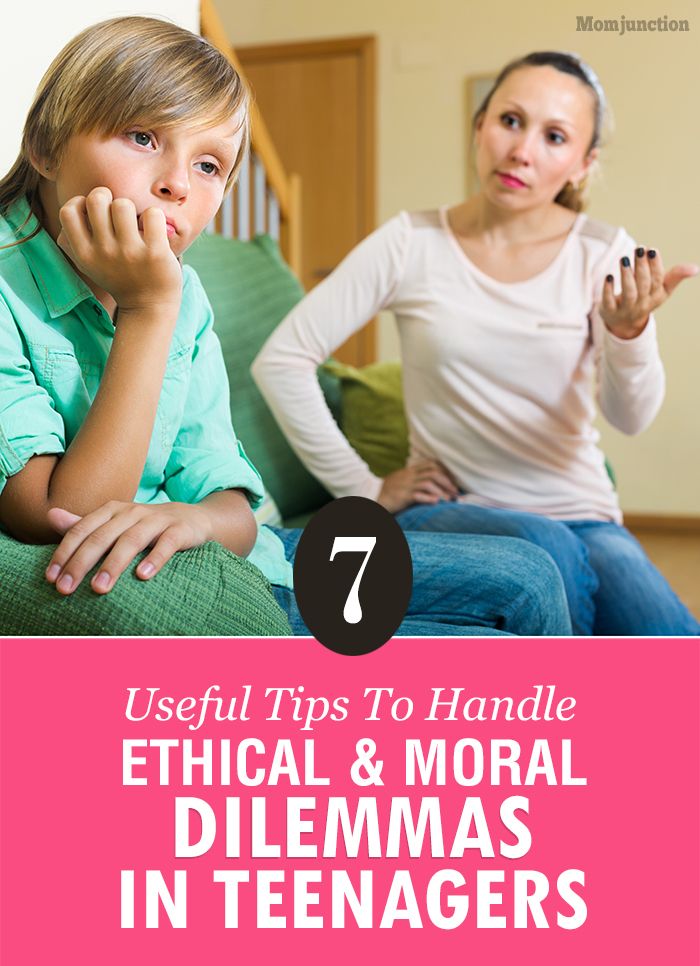 It is precisely because of hypercompensation that shy and timid teenagers, when choosing sports, prefer brute force - boxing, sambo, and a teenager who suffered from stuttering enthusiastically devotes himself to artistic reading and performs at amateur concerts.
It is precisely because of hypercompensation that shy and timid teenagers, when choosing sports, prefer brute force - boxing, sambo, and a teenager who suffered from stuttering enthusiastically devotes himself to artistic reading and performs at amateur concerts. - Grouping reaction with peers. Adolescents have an urgent need for their own identity and belonging to a group. Adolescents do not yet have a clearly conscious "I-image" and often feel more secure in an environment of their own kind. The feeling of "I" is still difficult to isolate from "We" - adolescents become members of various informal organizations. The group for a teenager becomes the main regulator of behavior. nine0010
This may explain the well-known fact that the vast majority of delinquency among adolescents is committed in a group. A pattern is observed: the younger the teenager, the larger the composition of the group. As they grow older, the number of group members decreases. At the age of 16-18, the group consists of 2-3 people.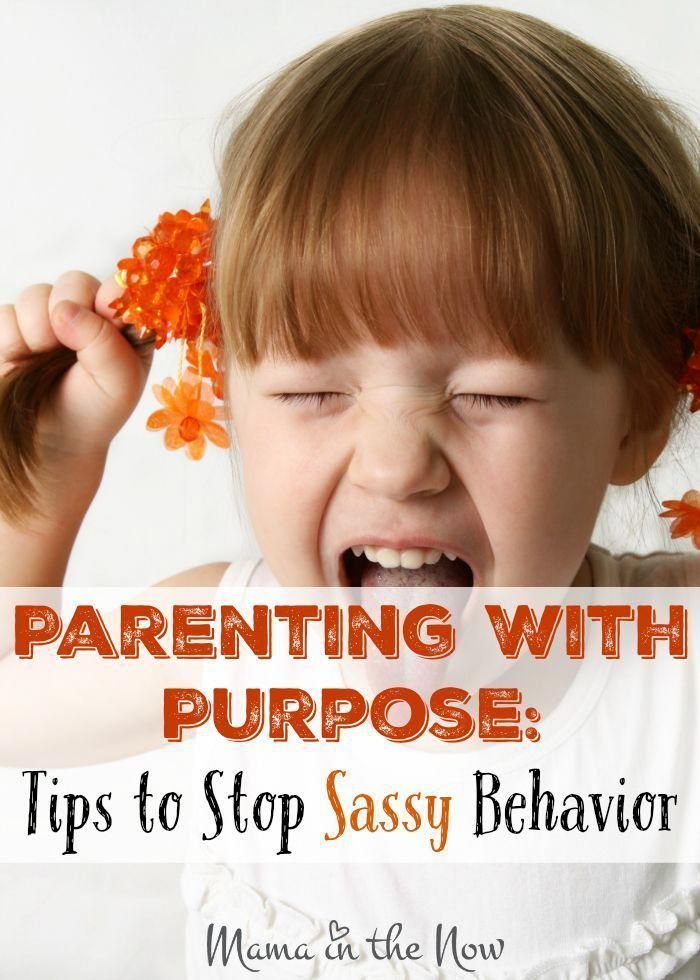
Tips for parents on raising teenagers, recommendations from psychologists
The whole truth about how to choose a backpack for a first grader. nine0005
- Articles
- Tips for parents on raising teenagers, recommendations from psychologists
Adolescence is not in vain called "difficult" or "transitional". In the period from 12-13 to 18 years old, physical, hormonal and psychological metamorphoses occur with the child, and it is extremely important for parents at this time to correctly build a line of communication with their child so that family relations remain harmonious and trusting. nine0005
In our material, we have collected for you proven recommendations from child psychologists and practical advice for parents on raising teenagers.
Features of adolescence
From about the age of 13, teenagers begin to ask themselves the fundamental questions “who am I?”, “What is my place in this world?”, “What do I want to do in life?” etc. Together with active physiological and hormonal changes, this leaves a serious imprint on the psychological state, so it is very important for parents not to miss this period and engage in education. nine0005
Together with active physiological and hormonal changes, this leaves a serious imprint on the psychological state, so it is very important for parents not to miss this period and engage in education. nine0005
In adolescents, to one degree or another, regardless of upbringing at an earlier age, the following manifestations are observed:
-
A sharp change in mood and emotional fluctuations that can be triggered by any, even the most insignificant event.
-
Increased need for recognition from outsiders and sensitivity to negative evaluation from them. nine0005
-
In adolescents, one can often see categorical judgments and rejection of advice from adults. It is difficult to convince them if they have formed a certain point of view on what is happening.
-
Excessive self-confidence and even arrogance in actions.
-
Inconsistency. Adolescents, feeling vulnerable, show their independence, and with complexes and shyness they try to fight with contrived swagger.
 nine0005
nine0005
It is not necessary that your teenager will have all of the above features of the worldview and behavior. Each person is an individual and each will have its own set of psychological characteristics that you need to be able to work with correctly.
For parents, this does not mean at all that you need to take certain steps and actions, you just need to learn to be flexible, understanding and more loving so that a teenager goes through the process of becoming a person without psychological trauma. nine0005
Tips for parents on raising teenagers
The first and most important recommendation to parents is to learn to distinguish a real problem from a far-fetched one. Every parent has an ideal image of a child in their head, but in practice it often turns out differently. For example, if a teenager dyed their hair blue and you don't like it, is it worth it to yell at the child, punish him and force him to wash off the dye? Definitely not. After all, such a desire to express oneself does not pose any threat to either society, or your family, or the child himself. On the contrary, the desire to walk around the city at night is not safe, and here it is already necessary to really take action and conduct conversations about the dangers of such actions. nine0005
After all, such a desire to express oneself does not pose any threat to either society, or your family, or the child himself. On the contrary, the desire to walk around the city at night is not safe, and here it is already necessary to really take action and conduct conversations about the dangers of such actions. nine0005
It is necessary to lay the foundations of education for teenagers at an earlier age, when children are more inclined to obey and not argue with their parents. For example, if at an early age the child did not have a clear daily routine, then it will be very difficult for you to prove to the teenager that you need to go to bed on time, and allocate no more than 1-2 hours a day to games at the computer. By the way, in our article “Daily routine of a student. We draw up the right routine ”you can learn about all the nuances of the correct preparation of the daily routine. nine0005
Do not overload your teenager with study and extracurricular activities. It often happens that children become executors not of their own, but of their parental ambitions, and this makes them feel driven out and dissatisfied. Parents need to learn to listen not to their own, but to the desires of a teenager.
It often happens that children become executors not of their own, but of their parental ambitions, and this makes them feel driven out and dissatisfied. Parents need to learn to listen not to their own, but to the desires of a teenager.
To reach your child, try to talk to him on an equal footing. Always justify your position. Saying “No because no” is a failed tactic in advance. nine0005
Respect the personal boundaries of a teenager and remember that good parenting is not the imposition of certain rules by force, but an open dialogue in which a teenager, with the help of adults, comes to the right conclusions on his own.
Psychologist's advice on raising a teenager
The most difficult thing in raising a teenager is to maintain a trusting and open relationship between the child and parents. If a teenager opens up to you about some personal experiences or advises on various issues, always show sincere interest and try. If a child trusts you with a secret, never reveal it to others.

